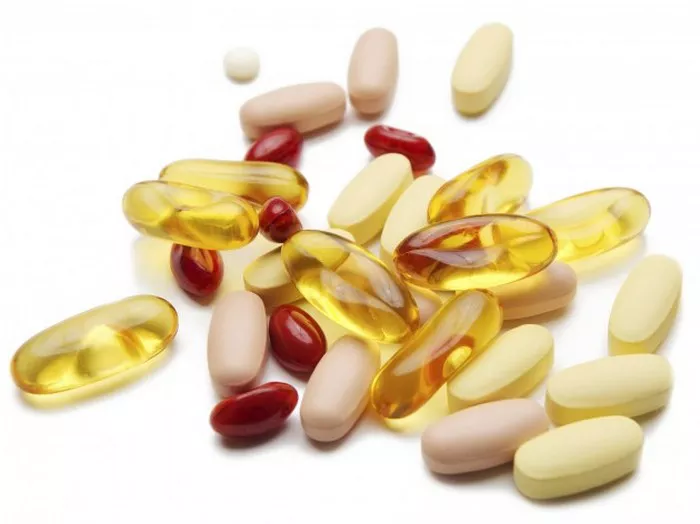The immune system is our body’s defense mechanism against infections and diseases. A robust immune system can ward off pathogens, reduce the risk of illnesses, and enhance overall health. Among various factors contributing to a strong immune system, proper nutrition plays a pivotal role. This article explores the essential vitamins that can help improve your immune system, their benefits, sources, recommended dosages, and the scientific evidence supporting their use.
The Importance of Vitamins in Immune Function
Vitamins are vital nutrients that our bodies need in small amounts for numerous biological functions. They support the immune system by enhancing the production and activity of immune cells, regulating inflammatory responses, and acting as antioxidants. A deficiency in essential vitamins can impair immune function, making the body more susceptible to infections and diseases.
1. Vitamin C (Ascorbic Acid)
Immune-Boosting Benefits
Vitamin C is one of the most well-known vitamins for its immune-boosting properties. It supports various cellular functions of the immune system, enhances the production and function of white blood cells, and improves the skin’s barrier function. As a powerful antioxidant, it helps protect immune cells from oxidative stress.
Sources of Vitamin C
Citrus fruits (oranges, lemons, grapefruits)
Berries (strawberries, blueberries, raspberries)
Kiwi
Bell peppers
Broccoli
Brussels sprouts
Spinach
Recommended Dosage
The Recommended Dietary Allowance (RDA) for vitamin C is:
Adults (men): 90 mg/day
Adults (women): 75 mg/day
Smokers: an additional 35 mg/day due to increased oxidative stress
Supplementation
While vitamin C can be obtained from a balanced diet, supplementation may be necessary for individuals with increased needs or those who do not consume sufficient amounts through food. High-dose vitamin C supplements are generally safe, but doses above 2,000 mg/day can cause gastrointestinal discomfort and should be avoided.
2. Vitamin D
Immune-Boosting Benefits
Vitamin D is crucial for immune system function. It enhances the pathogen-fighting effects of monocytes and macrophages and reduces inflammation. Vitamin D receptors are present on various immune cells, and adequate levels of this vitamin are associated with a lower risk of infections.
Sources of Vitamin D
Sunlight exposure (UVB rays convert cholesterol in the skin to vitamin D)
Fatty fish (salmon, mackerel, sardines)
Cod liver oil
Fortified foods (milk, orange juice, cereals)
Egg yolks
Recommended Dosage
The RDA for vitamin D varies based on age, sex, and life stage:
Adults (ages 19-70): 600 IU/day (15 mcg/day)
Adults (ages 71 and older): 800 IU/day (20 mcg/day)
Supplementation
Supplementation is often necessary, especially for individuals with limited sun exposure or those living in higher latitudes. Vitamin D supplements come in two forms: D2 (ergocalciferol) and D3 (cholecalciferol). D3 is more effective at raising blood levels of vitamin D. Consulting with a healthcare provider before starting supplements is important, as excessive intake can lead to toxicity.
3. Vitamin E
Immune-Boosting Benefits
Vitamin E is a powerful antioxidant that helps protect immune cells from oxidative damage. It enhances the production of immune cells and supports the immune response. Vitamin E also plays a role in the regulation of T cell function, which is crucial for the adaptive immune response.
Sources of Vitamin E
Nuts and seeds (almonds, sunflower seeds, hazelnuts)
Vegetable oils (sunflower oil, safflower oil, wheat germ oil)
Green leafy vegetables (spinach, broccoli)
Fortified cereals
Recommended Dosage
The RDA for vitamin E is:
Adults: 15 mg/day (22.4 IU)
Supplementation
Vitamin E supplements are available in natural (d-alpha-tocopherol) and synthetic (dl-alpha-tocopherol) forms. The natural form is more bioavailable and effective. High doses of vitamin E supplements can interfere with blood clotting and should be taken with caution.
4. Vitamin A
Immune-Boosting Benefits
Vitamin A is essential for maintaining the integrity and function of mucosal surfaces in the respiratory and gastrointestinal tracts, which act as barriers against infection. It supports the production and function of white blood cells, enhancing the body’s ability to fight off pathogens. Vitamin A also has anti-inflammatory properties that are beneficial for immune health.
Sources of Vitamin A
Animal products (liver, fish oils, dairy products, eggs)
Beta-carotene-rich fruits and vegetables (carrots, sweet potatoes, spinach, kale, apricots)
Recommended Dosage
The RDA for vitamin A is:
Adult men: 900 mcg RAE/day
Adult women: 700 mcg RAE/day
Supplementation
Vitamin A supplements come in two forms: preformed vitamin A (retinol) and provitamin A (beta-carotene). Excessive intake of preformed vitamin A can be toxic, whereas beta-carotene is safer as the body converts it to vitamin A as needed. Consultation with a healthcare provider is recommended before starting supplements.
5. Vitamin B6 (Pyridoxine)
Immune-Boosting Benefits
Vitamin B6 is vital for the biochemical reactions that support immune function. It aids in the production of antibodies and T cells, and its deficiency can impair the immune response. Vitamin B6 also supports the body’s inflammatory response and the maintenance of lymphoid organs.
Sources of Vitamin B6
Poultry (chicken, turkey)
Fish (salmon, tuna)
Potatoes and other starchy vegetables
Non-citrus fruits (bananas, avocados)
Fortified cereals
Recommended Dosage
The RDA for vitamin B6 is:
Adults (ages 19-50): 1.3 mg/day
Older adults (men over 50): 1.7 mg/day
Older adults (women over 50): 1.5 mg/day
Supplementation
Vitamin B6 supplements are generally safe, but high doses (more than 100 mg/day) can lead to nerve damage. It’s best to obtain this vitamin through a balanced diet, but supplements can be used if dietary intake is insufficient.
6. Vitamin B12 (Cobalamin)
Immune-Boosting Benefits
Vitamin B12 is essential for the production of red blood cells and DNA synthesis. It also plays a role in the proper functioning of the immune system. Vitamin B12 deficiency can lead to reduced white blood cell production, impairing the body’s ability to fight infections.
See Also: What Do Family Therapists Do?
Sources of Vitamin B12
Animal products (meat, fish, poultry, dairy products, eggs)
Fortified foods (plant-based milk, cereals)
Recommended Dosage
The RDA for vitamin B12 is:
Adults: 2.4 mcg/day
Supplementation
Vitamin B12 supplements are particularly important for vegetarians, vegans, and older adults, as these groups are at higher risk of deficiency. Supplements are available in various forms, including cyanocobalamin and methylcobalamin. The latter is more bioavailable.
7. Folate (Vitamin B9)
Immune-Boosting Benefits
Folate is crucial for DNA synthesis and repair, as well as the production of white blood cells. Adequate folate levels are essential for the proper functioning of the immune system. Folate deficiency can impair the body’s ability to produce antibodies and fight infections.
Sources of Folate
Dark green leafy vegetables (spinach, kale)
Legumes (beans, lentils)
Nuts and seeds
Citrus fruits
Fortified grains and cereals
Recommended Dosage
The RDA for folate is:
Adults: 400 mcg DFE/day
Supplementation
Folate supplements are available in synthetic form as folic acid. Women of childbearing age and pregnant women are often advised to take folic acid supplements to prevent neural tube defects in infants. Excessive folic acid intake can mask vitamin B12 deficiency and should be managed with care.
8. Vitamin K
Immune-Boosting Benefits
Vitamin K is essential for blood clotting and bone health. Emerging research suggests that it also plays a role in immune function by regulating inflammatory responses and supporting the production of immune cells.
Sources of Vitamin K
Green leafy vegetables (kale, spinach, broccoli)
Fish
Meat
Eggs
Fermented foods (natto)
Recommended Dosage
The RDA for vitamin K is:
Adult men: 120 mcg/day
Adult women: 90 mcg/day
Supplementation
Vitamin K supplements are generally safe, but individuals on anticoagulant medications should consult their healthcare provider before taking them. Vitamin K2, found in fermented foods and animal products, is particularly beneficial for bone and cardiovascular health.
Combining Vitamins for Optimal Immune Health
Balanced Diet
A balanced diet rich in fruits, vegetables, whole grains, lean proteins, and healthy fats is the best way to ensure adequate intake of essential vitamins. Diverse food choices provide a wide range of nutrients that work synergistically to support immune health.
Multivitamins
Multivitamins can be a convenient way to supplement the diet, especially for individuals with dietary restrictions or increased nutritional needs. When choosing a multivitamin, look for one that provides at least 100% of the daily value for essential vitamins.
Lifestyle Factors
In addition to a balanced diet and supplementation, other lifestyle factors contribute to optimal immune health. These include regular exercise, adequate sleep, stress management, and good hygiene practices.
Conclusion
Maintaining a robust immune system is essential for protecting the body against infections and diseases. Vitamins play a crucial role in supporting immune function by enhancing the production and activity of immune cells, regulating inflammation, and acting as antioxidants. A balanced diet rich in essential vitamins, along with appropriate supplementation when necessary, can significantly improve immune health. By understanding the benefits, sources, and recommended dosages of key vitamins, individuals can make informed choices to support their immune systems and overall well-being.
In summary, ensuring adequate intake of vitamins C, D, E, A, B6, B12, folate, and K through a balanced diet and supplementation can help strengthen your immune system and protect against various health challenges. Always consult with a healthcare provider before starting any new supplement regimen to ensure it aligns with your specific health needs and conditions.
[inline_related_posts title=”You Might Be Interested In” title_align=”left” style=”list” number=”6″ align=”none” ids=”10216,10185,10133″ by=”categories” orderby=”rand” order=”DESC” hide_thumb=”no” thumb_right=”no” views=”no” date=”yes” grid_columns=”2″ post_type=”” tax=””]


































